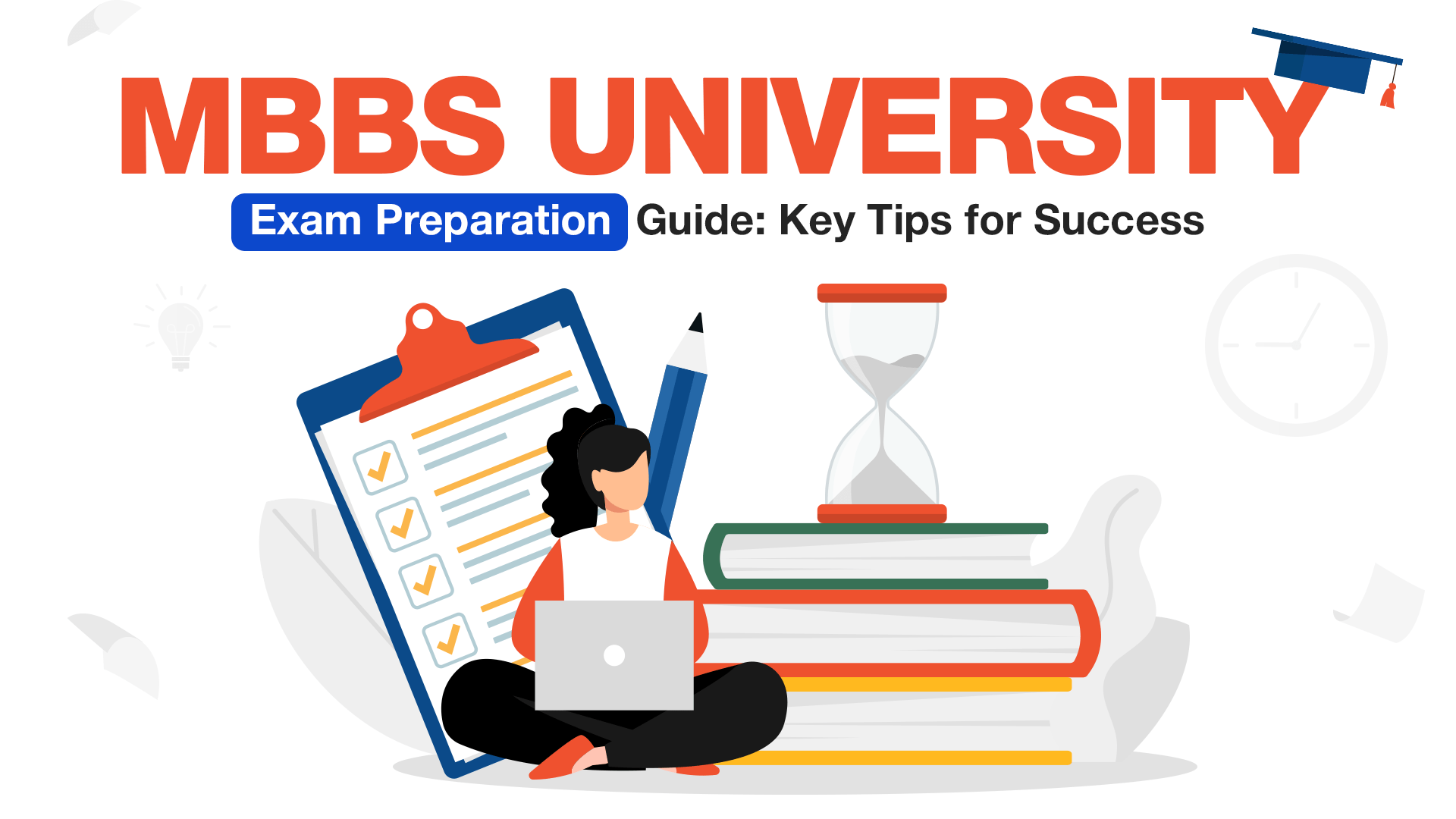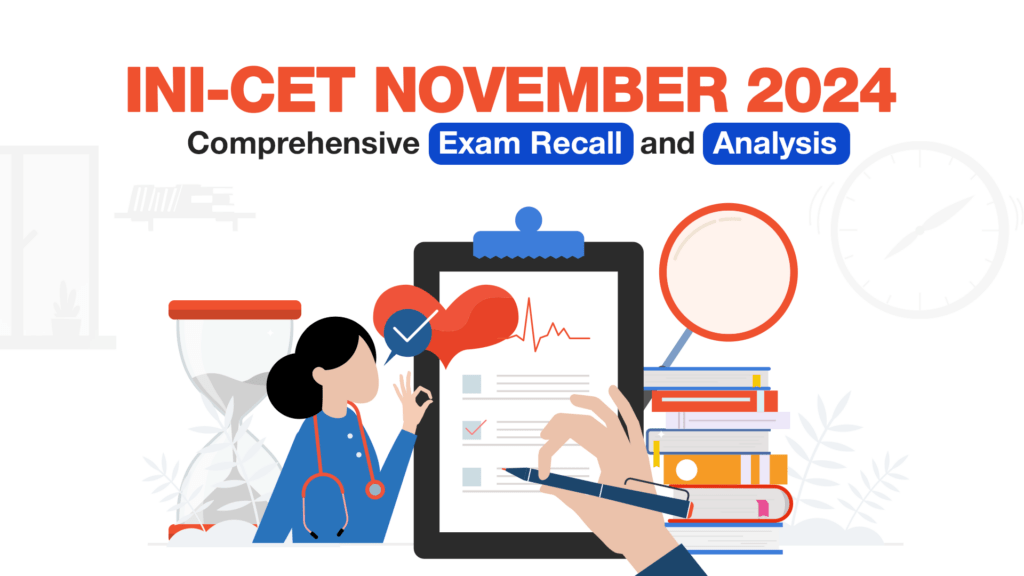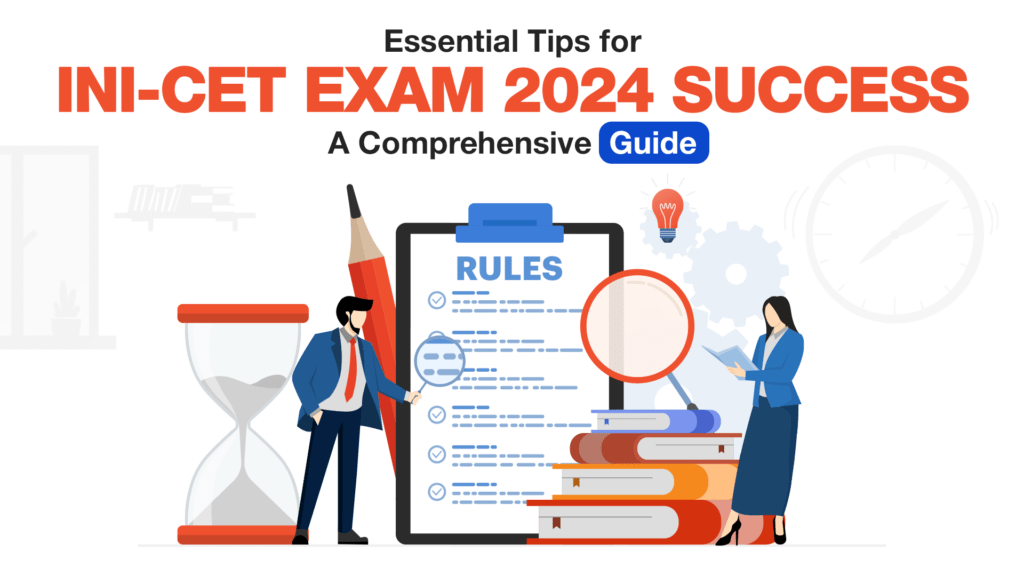The journey through medical school is both challenging and rewarding. One of the critical milestones in this journey is appearing for writing university exams. These exams are not just a test of your knowledge but also your ability to apply what you’ve learned in real-world scenarios. For MBBS students, particularly those in their first and second years, mastering the basic sciences is crucial. It lays the foundation for more advanced subjects and ultimately “shapes” your competence as a future doctor. This guide will provide you with tips and strategies to excel in your MBBS university exams by focusing on the importance of a strong foundation in basic sciences.
How to Study for MBBS University Exams?
The MBBS curriculum is vast, and the pressure to perform well in university exams can be overwhelming. However, with the right approach and mindset, you can navigate through it successfully. Here’s how you can prepare effectively.
Understanding the MBBS Exam Format
Before diving into your study materials, it’s essential to understand the exam format. MBBS exams typically include a mix of Multiple-Choice Questions (MCQs), short answers, long answers, and practical exams. Each format tests different aspects of your knowledge and skills. MCQs often focus on basic recall and application, while short and long answers assess your ability to articulate and integrate information. Practical exams are designed to evaluate your hands-on skills and clinical reasoning. Familiarising yourself with these formats will help you tailor your study strategies accordingly.
Developing a Study Plan
A well-structured study plan is the backbone of your exam preparation. Start by breaking down your syllabus into manageable sections. Prioritise subjects based on their weightage in the exams and your comfort level with the material. For instance, if you’re using the Manipal MedAce app, you can access a basic science course that aligns perfectly with your MBBS preparation needs. This can serve as a valuable resource to reinforce your understanding of core concepts. Allocate specific time slots for each subject and stick to your schedule as closely as possible. Consistency is key in retaining information and building a strong foundation.
Mastering the Syllabus
The MBBS syllabus is extensive, and mastering it requires a strategic approach. Begin by identifying the core topics that are frequently tested in university exams. For example, in the first year, subjects like Anatomy, Physiology, and Biochemistry form the crux of your studies. Utilise resources like MBBS videos and mock tests available on platforms like Manipal MedAce to deepen your understanding. These tools can provide you with visual aids and practice questions that mimic the actual exam format. Additionally, regularly revisiting previous years’ question papers can give you insights into the examiners’ expectations and help you focus on high-yield topics.
Using Effective Study Techniques
Effective study techniques can make a significant difference in how well you retain and apply information. Active learning methods, such as summarising information in your own words, teaching concepts to peers, and solving practice questions, are more effective than passive reading. The Manipal MedAce app offers a range of study materials, including detailed explanations of basic science concepts and interactive quizzes that can enhance your learning experience. Incorporating these techniques into your study routine will not only help you understand the material better but also improve your recall during exams.
Time Management During Exams
Time management is crucial during MBBS exams. With a limited amount of time to answer a vast array of questions, you need to be strategic about how you allocate your time. Start by reading through the entire question paper and identifying the questions you’re most confident about. Tackle these first to secure easy marks. For MCQs, avoid spending too much time on any single question. If you’re unsure, make an educated guess and move on. For long answers, draft a quick outline before you start writing to ensure your response is structured and covers all key points.
Practice Regularly
Regular practice is essential for success in MBBS exams. Make use of mock tests and previous years’ question papers. This not only helps you get comfortable with the exam format but also improves your speed and accuracy. Platforms like Manipal MedAce provide a wealth of practice materials, including mock tests that replicate the actual exam environment. Regular practice also helps you identify your weak areas, allowing you to focus on your revision efforts more effectively.
Maintaining Health & Well-Being
While preparing for exams, it’s easy to neglect your health and well-being. However, maintaining a healthy lifestyle is crucial for optimal cognitive function. Ensure you’re getting enough sleep, eating a balanced diet, and staying physically active. Incorporating regular breaks into your study schedule can prevent burnout and improve your productivity. Additionally, practicing stress-relief techniques and seeking support when needed can further enhance your mental health. Remember, a healthy mind and body are your best assets in achieving academic success.
Expert Tips To Score High in MBBS Exams
Prioritising Subjects & Topics
Not all topics carry the same weightage in MBBS exams. Focus on high-yield topics that are frequently tested. Use resources like the Manipal MedAce app to identify these topics and prioritise them in your study plan.
Techniques to Allocate Time During Exams
Effective time allocation during exams is a skill that can be honed with practice. One strategy is to divide your time based on the marks allocated to each section. For instance, spend more time on long-answer questions, as they typically carry more weight. Practice writing concise and well-structured answers within a limited time frame to improve your efficiency.
Writing Concise Responses
In exams, clarity and conciseness are key. Practice writing answers that are direct and to the point. Use bullet points, diagrams, and flowcharts to convey information quickly and effectively. This not only saves time but also makes it easier for examiners to follow your thought process.
Preparing with Practical Exercises
Practical exams are an integral part of MBBS assessments. Regular practice of clinical skills and lab exercises is essential for performing well in these exams. Work on honing your practical skills by attending lab sessions regularly and practicing clinical scenarios with your peers. The more hands-on experience you gain, the more confident you’ll be during the practical exams.
By following these tips and utilising resources like Manipal MedAce, you’ll be well-prepared to excel in your MBBS university exams. Remember, consistency, regular practice, and a healthy lifestyle are the pillars of success.
FAQs
1. How to Study for MBBS University Exams?
Start by understanding the exam format, developing a structured study plan, and using effective study techniques like active learning and regular practice.
2. How can I manage my time during the MBBS exam?
Manage your time by prioritising questions, practicing time allocation, and writing concise responses.
3. How to prepare Anatomy for the MBBS Exam?
Draw labelled diagrams, use mnemonics for complex structures and practice with interactive 3d models, along with solving previous years’ QPs.







